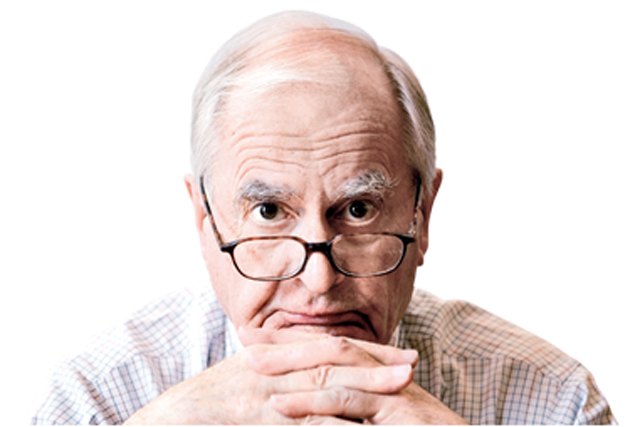Advertising agencies have always felt vulnerable. There has always been an oversupply. Competition has always been acute. Clients have never had to pay extra in order to obtain their services. But, until very recently, agencies have never had to entertain the possibility that they might no longer be needed; no longer necessary; that they face a future as full of promise as that of the carthorse or the spinning jenny.
And so it could come to pass. Clients could provide their own communications strategy, buy time and space direct from media owners and source their content from the crowd. Their procurement people would see the good sense in all this and would put some enticing figures on it.
By far the most effective way for agencies to stop this happening is for them to be utterly engaging as people, to be painless to deal with and to deliver brand communications of wondrous relevance and effect. In other words, to become indispensable. Loss aversion is the card to play.
It’s odd that agencies haven’t thought of this before.
What was your first job in advertising and what led you to take it?
My first job in advertising was my first job. I was offered £10 a week or £500 a year to become a trainee copywriter at J Walter Thompson London. Though numbers have never been my strength, I wisely plumped for the £10 a week. It was explained that, had I graduated, the offer would have been higher. I had never heard of J Walter Thompson. I took it because I had £13.10s in the bank and needed a job.
On my first day, my boss, whom I’d never met, was away. After an hour, an efficient traffic man called a controller handed me a piece of paper called a requisition. It demanded that I write the words for an eight-inch double on behalf of Pan American World Airways to be inserted in several national newspapers. I didn’t know what an eight-inch double was and there was no-one to ask, so I wrote it anyway. Its purpose was to celebrate the fact that an important American horse race, yet to take place, had been won by an English racehorse that had been flown to the US by Pan American World Airways.
Two weeks later, the race was held, the horse came seventh and my debut advertisement never ran. However, since I’d written it, I was now considered to be a copywriter. I never got that training.
I have hard evidence that my managing director is a bit of a Lord Sewel. Are these things more acceptable in advertising than politics or should I fire him?
I bet you most people have already forgotten about Lord Sewel. If you’ve been waiting for an excuse to fire your MD, then by all means take it.
But if he’s a good MD, not known for corrupting the young, show him your hard evidence and tell him to grow up.
How important is self-scheduling through an EPG? Can people be bothered?
It’s commonly assumed that, when evaluating products that deliver an equivalent benefit, the latest will always be the best. Think mobile phones, for example. Well, it’s often true but it’s not always.
Safety razors (c.1930) were a lot better than cut-throat razors but electric razors have never been better than safety razors. If safety razors had been invented after electric razors, they’d have been an immediate smash hit.
We all know what’s wrong with books. They’re bulky and you have to cut down trees to make them. A few thousand years later, the Kindle neatly eliminates both disadvantages – but it’s not a better book.
When I buy an old-fashioned newspaper, I buy a lot of stuff that doesn’t interest me much. Algorithms promise me personalised newspapers that contain only stuff in which I’m already interested. But how will I know what I might be interested in if I never chance upon it?
And the same goes for television. It’s not the bother of the EPG that puts me off. It’s the knowledge that I’d never again stumble on an entirely unpremeditated delight.
(If I wrote for The New Yorker, this would have been an 8,000-word article, later to become a best-selling 60,000-word book.)
Jeremy Bullmore welcomes questions via campaign@haymarket.com or 北京赛车pk10, Teddington Studios, Broom Road, Teddington, TW11 9BE


